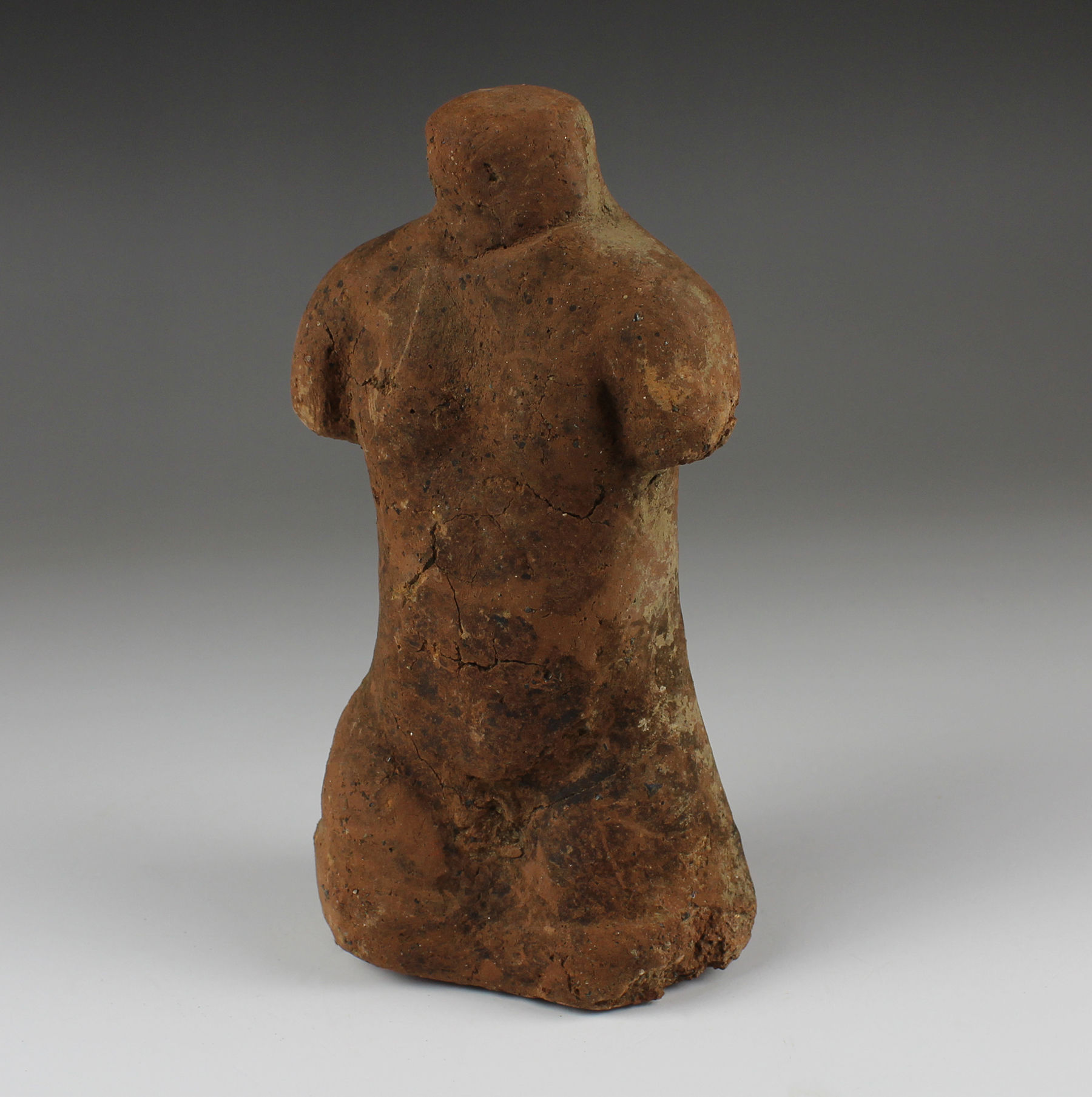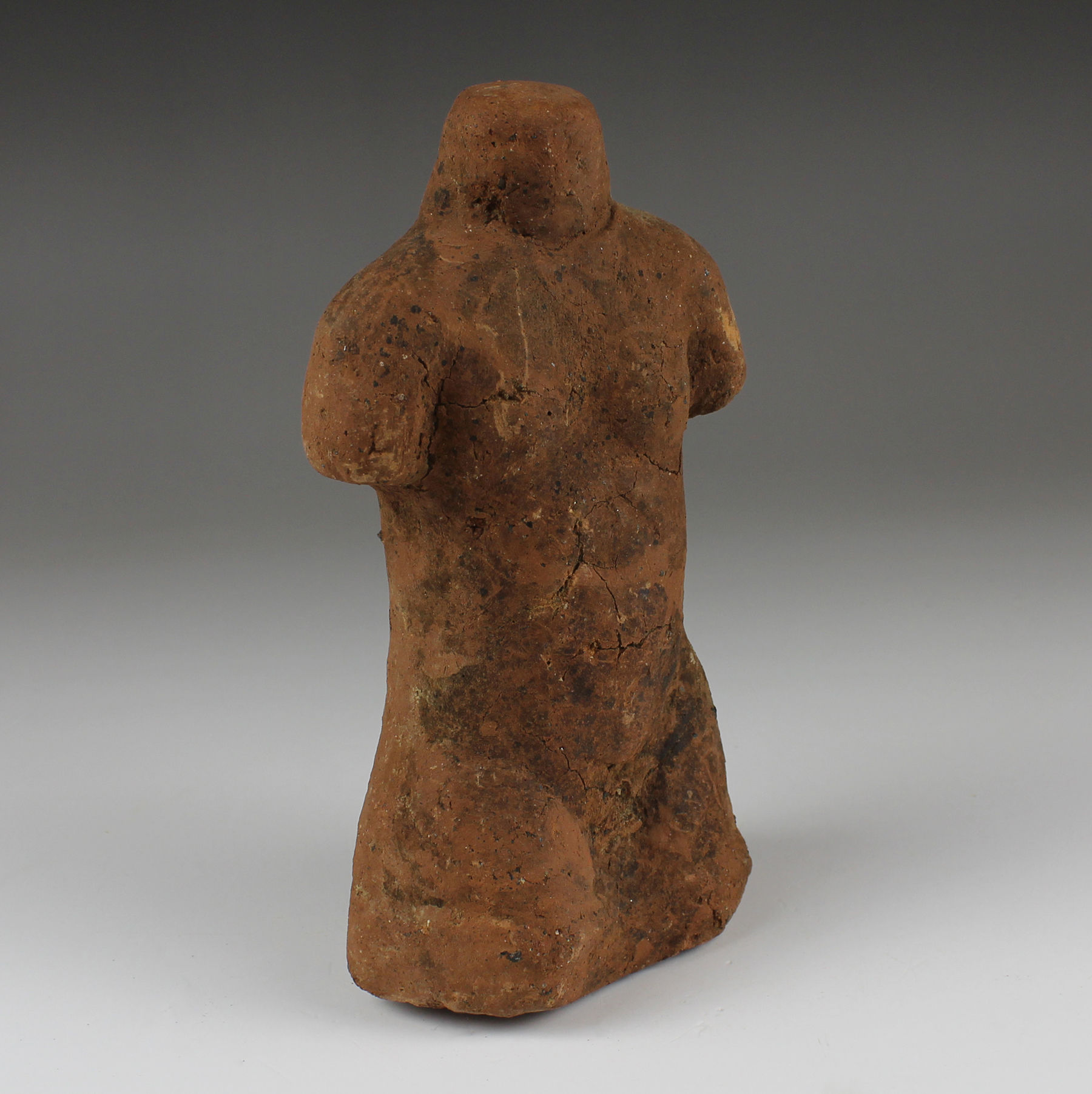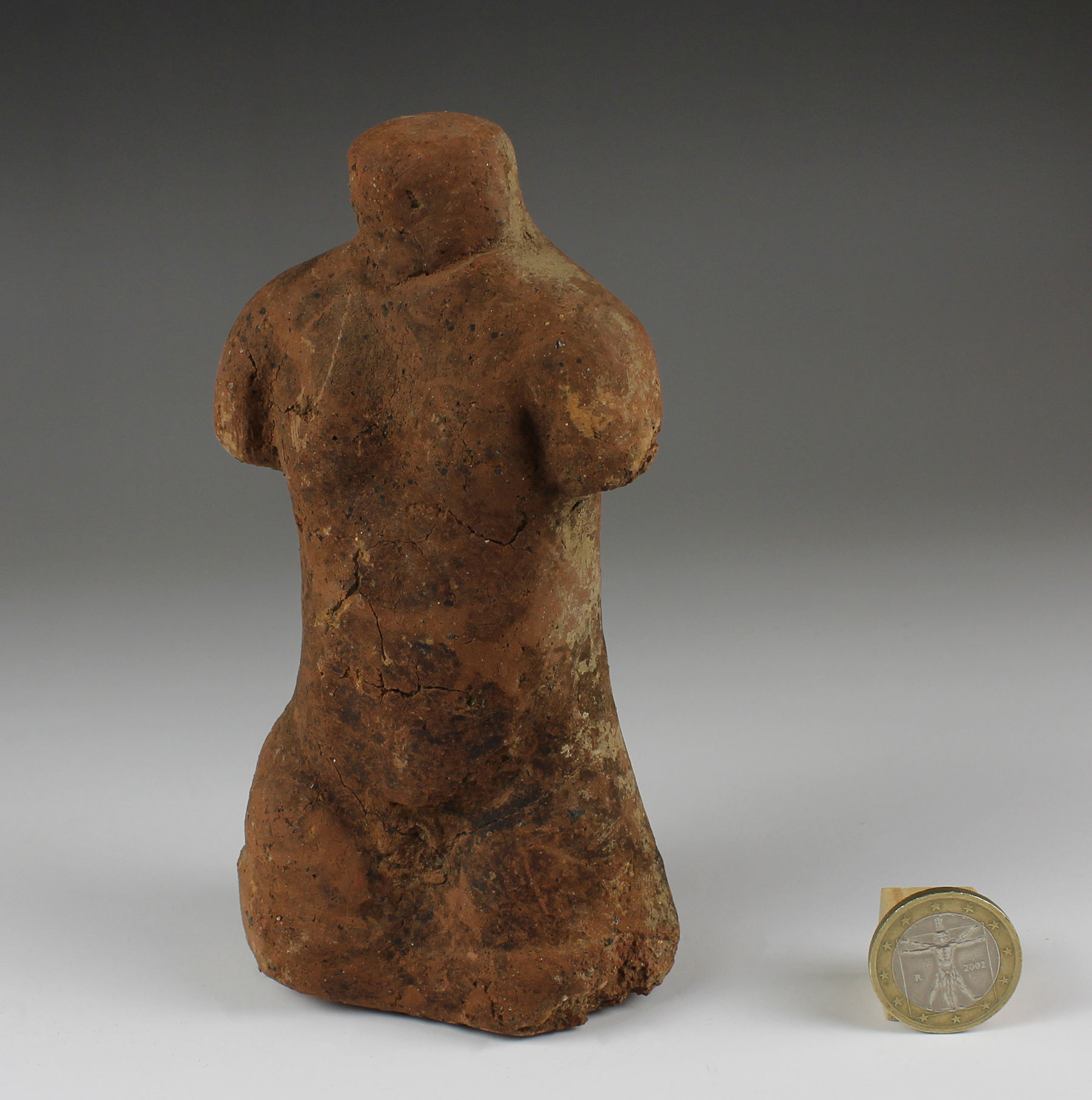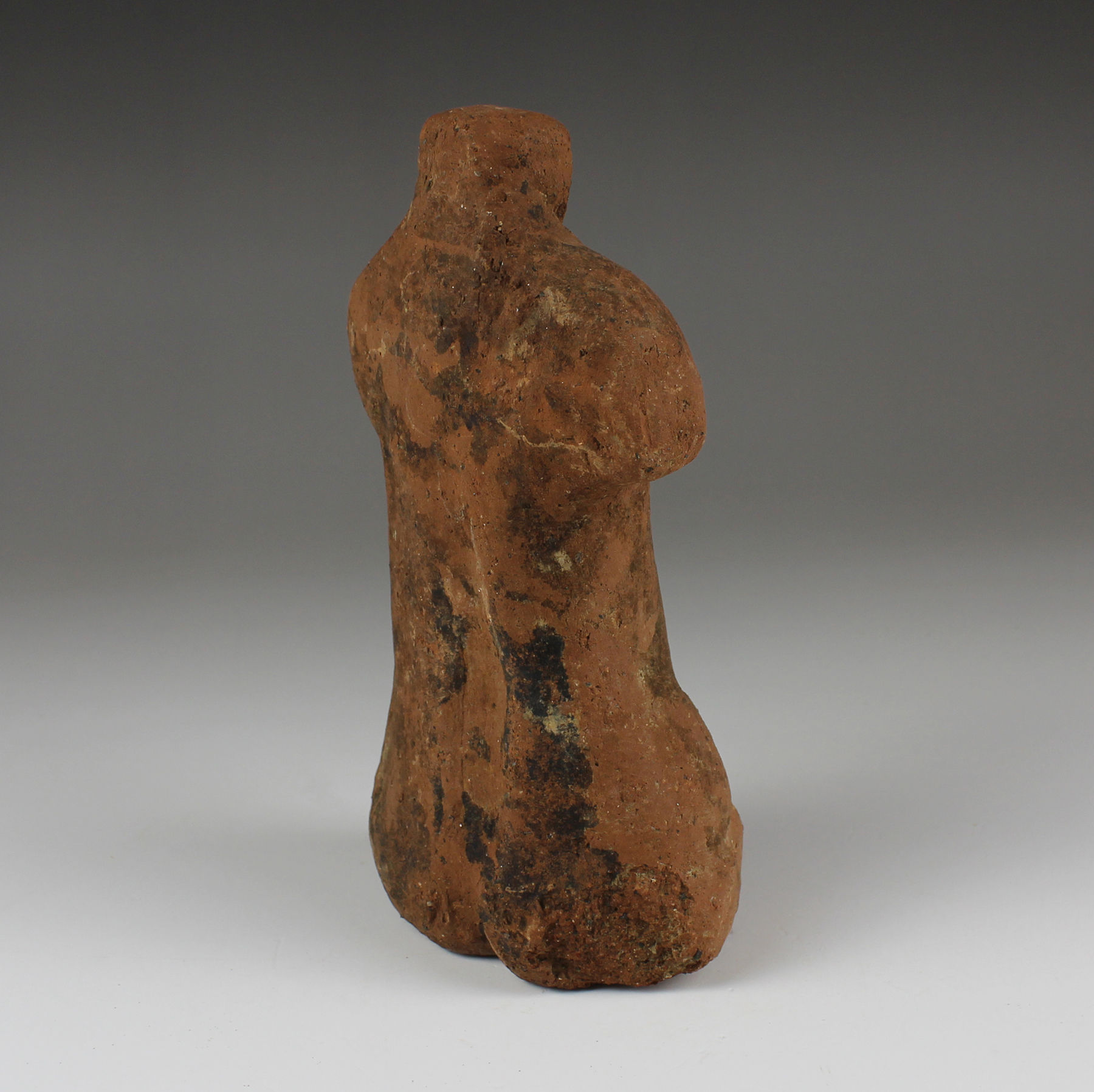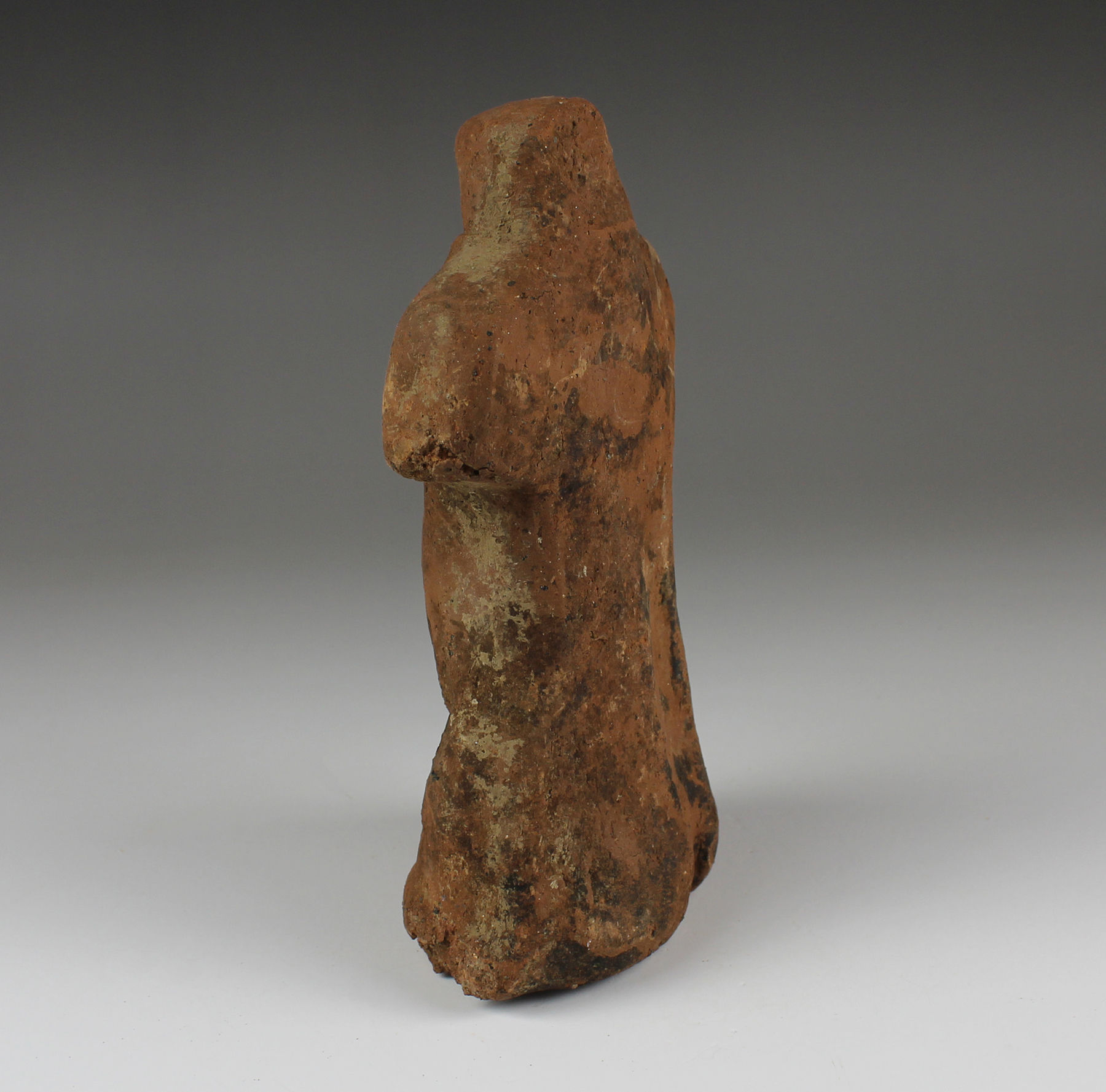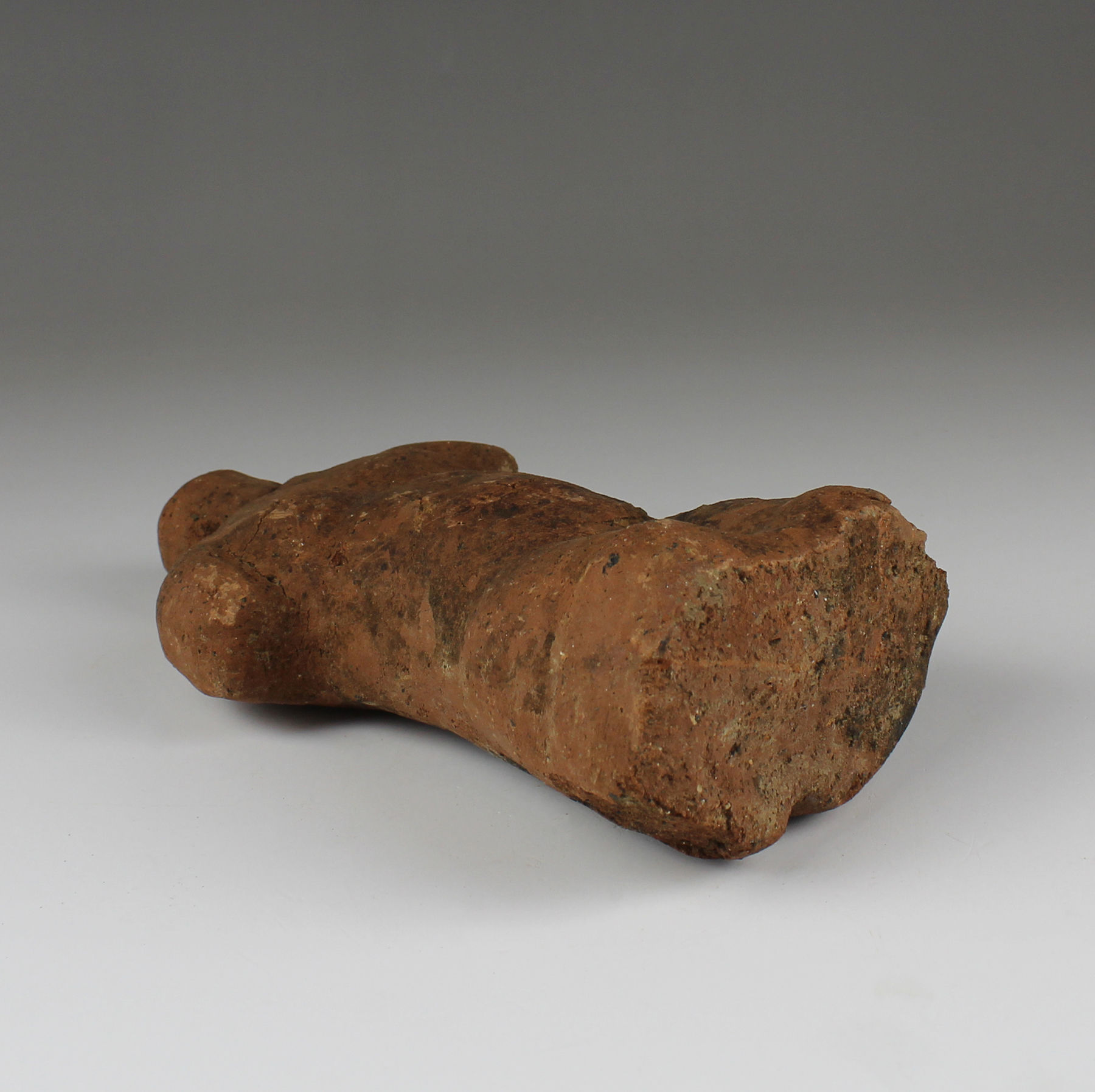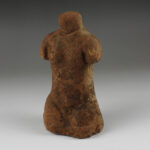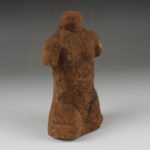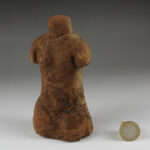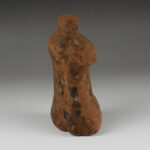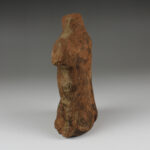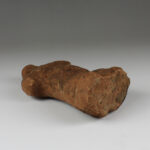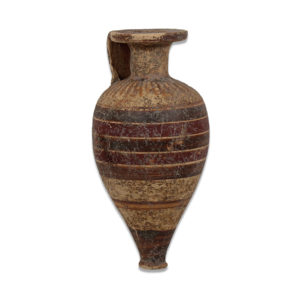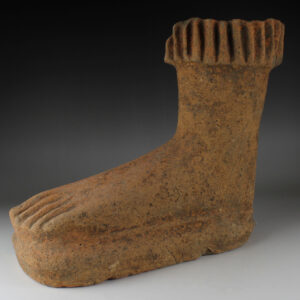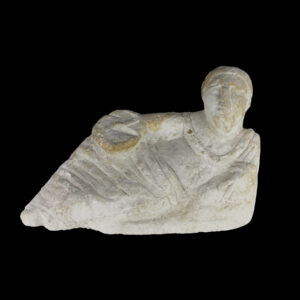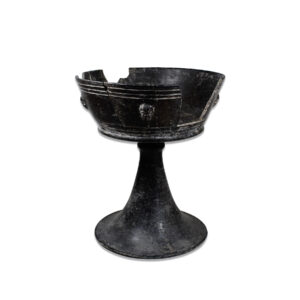Description
| ITEM | Votive model of a male torso |
| MATERIAL | Terracotta |
| CULTURE | Etruscan |
| PERIOD | 4th Century B.C |
| DIMENSIONS | 140 mm x 75 mm |
| CONDITION | Good condition |
| PROVENANCE | Ex Dutch private collection, by descent 1983 by inheritance to the present owner (2010), Ex E. W. 1966, Ex D. S., London (1917 – 1991) |
In antiquity, the cult of a mother goddess and divine nurse (or kourotrophos) was prevalent throughout the Mediterranean, from Asia Minor to Sicily and from southern Russia to North Africa. The kourotrophos directly intervened in the affairs of men, her domain embracing all aspects of life and death.
From early in the Archaic period, images of kourotrophoi frequently appeared in the art of central and Southern Italy. These depictions commonly took the form of a seated female holding a swaddled child. Diana, Mater Matuta, Minerva, Persephone, Turan, and Uni are some of the goddesses worshipped as kourotrophoi in Italy.
Terracotta votive statues, statuettes, heads, busts, infants, and anatomical parts were common dedications to a kourotrophos at her sanctuaries in Etruria, Latium, and Campania. Examples are scattered worldwide in museums and private collections.


